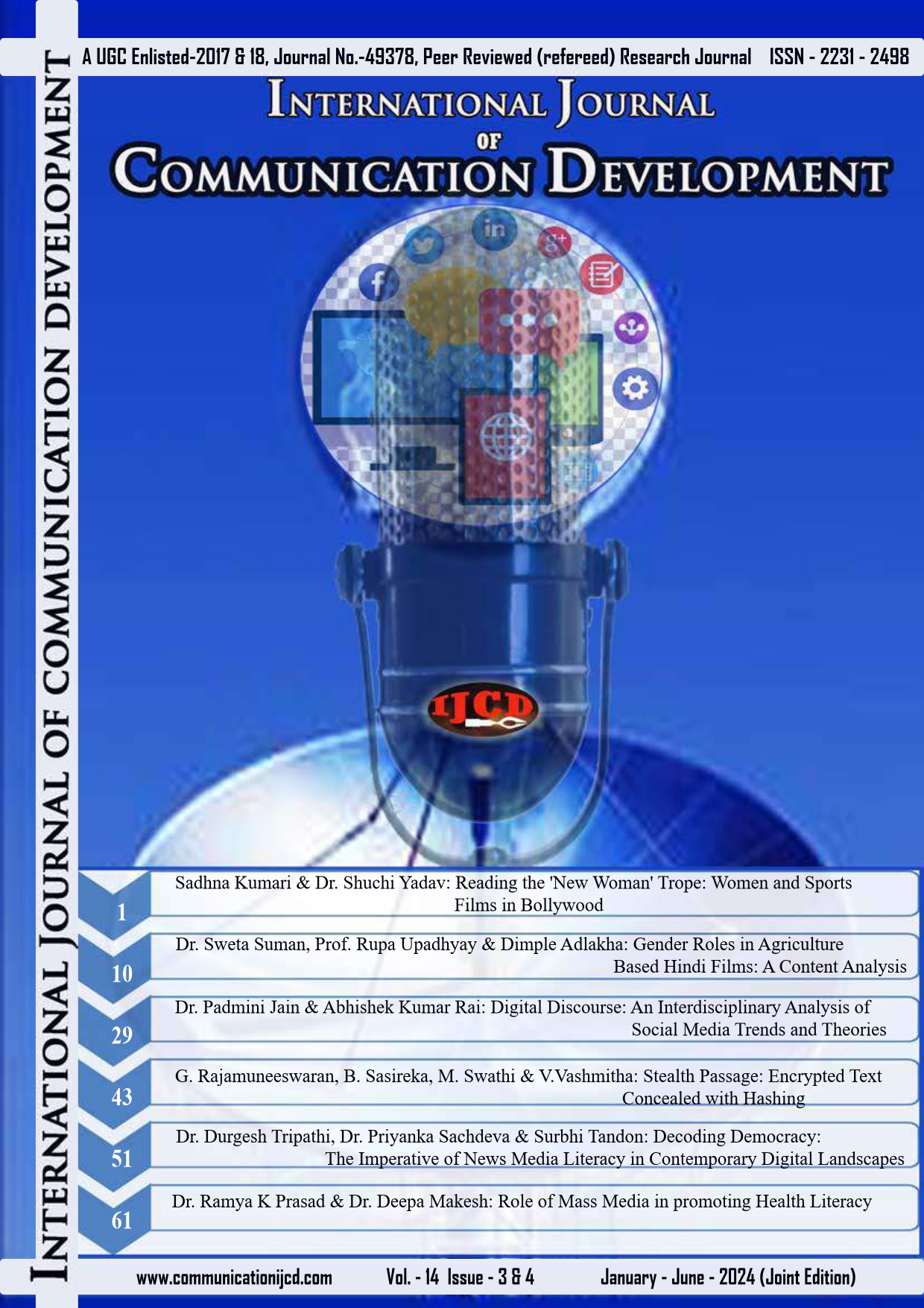Decoding Democracy: The Imperative of News Media Literacy inContemporary Digital Landscapes
##plugins.themes.bootstrap3.article.main##
Abstract
Democracy faces a crucial challenge in balancing citizen engagement with the need for reliable
information as information is a building block for the opinion formation process. This article
explores the complexities of democracy, highlighting the importance of elected representatives and
an informed populace within a trustworthy information ecosystem. The digital age has an
information overload along with the threat of the hoaxes, conspiracy theories, false news, and
confirmation bias, which has prompted questions over the reliability of information from various
sources. Although news is essential for maintaining citizens' education, the study makes it
important to identify the news sources, especially in the digital age that includes Facebook,
Instagram, and other news websites. The primary concerns discussed are how news media literacy
affects citizens' ability to make decisions, how news media literacy contributes to a healthy and
dynamic democratic society, and how news media literacy and democracy are related. By delving
into these questions, the study presents news media literacy as a new and essential field—
particularly considering the digital age. In addition to addressing fake news, it clarifies how the
media environment is changing and how business models are adapting, all while adhering to
fundamental principles of media literacy. The paper investigates the need for the news media
literacy in post-truth era and ways to curate news consumption in the digital world. One of the main
points made is that people should look beyond superficial assessments of the news and investigate
the organizations, structures, customs, and practices that exist within the news media landscape. It
is believed that developing analytical abilities is essential to gathering reliable data and preserving
the country's democratic foundation. To identify the underlying structures and institutions in the
news media environment, the research emphasizes how important it is for people to have news
media literacy abilities. It is believed that critical analysis skills are necessary for both maintaining
a democratic process that is sustainable and for obtaining information in an authentic way. In its
conclusion, the paper urges policy interventions that contemplate the measures required to
guarantee that journalism satisfies its social responsibilities in the context of a vibrant democracy.



